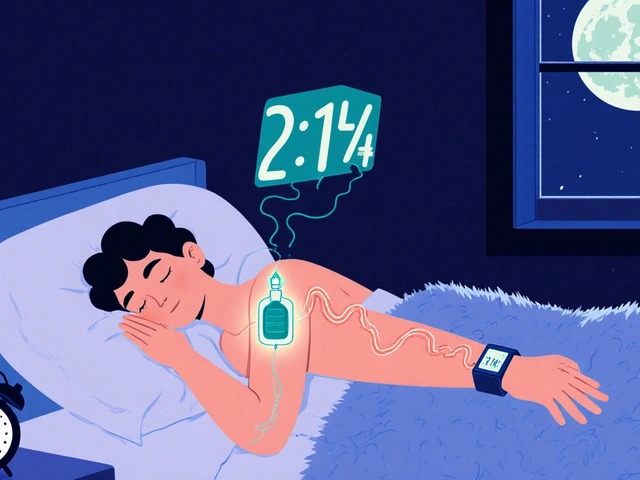cetirizine: Everything You Need to Know
When working with cetirizine, a second‑generation antihistamine that blocks H1 receptors to calm allergic reactions. Also known as Zyrtec, it belongs to the broader class of antihistamines that target histamine, the molecule behind allergy symptoms such as sneezing, watery eyes, and itching.
Key Facts About cetirizine
cetirizine works by binding to H1 receptors on mast cells, preventing histamine from triggering the classic allergy cascade. This action reduces inflammation in the nasal passages, eyes, and skin, making it effective for hay fever, indoor allergies, and chronic urticaria. Because it doesn’t cross the blood‑brain barrier easily, it typically causes less drowsiness than first‑generation antihistamines.
Dosage is straightforward: adults and children over 12 can take 10 mg once daily, while kids aged 6–11 usually need 5 mg. The tablet or liquid form can be taken with or without food, and its effects start within an hour, lasting up to 24 hours. For people who experience mild drowsiness, taking the dose at night can help avoid daytime sleepiness.
Interactions matter. cetirizine is metabolized minimally by the liver, so it has a low risk of clashing with most drugs. However, combining it with other sedatives—like diphenhydramine, certain antidepressants, or alcohol—can increase drowsiness. Some antibiotics, such as ciprofloxacin, may raise cetirizine levels slightly, so monitoring for side effects is wise.
Special populations need extra care. Pregnant or nursing moms should consult a doctor before starting, though many clinicians consider cetirizine relatively safe. For children under six, the drug isn’t officially approved, so pediatric guidance is essential. People with severe kidney impairment may require dose adjustments because the medication is cleared renally.
Beyond allergy relief, cetirizine can help with related conditions you’ll see across our site. Its antihistamine action eases motion‑sickness symptoms, supports asthma action plans by reducing airway irritation, and can complement skin‑care routines for eczema or hives—topics covered in articles about motion sickness, asthma, and topical antibiotics.
Keeping a log of when symptoms appear, what triggers them, and how cetirizine affects you can improve management. Pair the medication with non‑drug strategies like saline nasal rinses, HEPA filters, and allergen‑avoidance habits for a more holistic approach.
Below you’ll find a curated collection of articles that dive deeper into related meds, conditions, and practical tips. Whether you’re comparing cetirizine with other antihistamines, looking for dosage charts, or exploring how allergies intersect with other health issues, the resources here will give you clear, actionable information.

- Sep 25, 2025
- Posted by Cillian Osterfield
How to Buy Cheap Generic Zyrtec Online Safely
Learn where to find cheap generic Zyrtec online, how to verify safe pharmacies, compare prices and avoid common pitfalls. Get the best deal without compromising health.
Categories
- Health and Wellness (72)
- Medications (69)
- Health and Medicine (28)
- Pharmacy Services (12)
- Mental Health (9)
- Health and Career (2)
- Medical Research (2)
- Business and Finance (2)
- Health Information (2)
Latest Posts
©2026 heydoctor.su. All rights reserved





